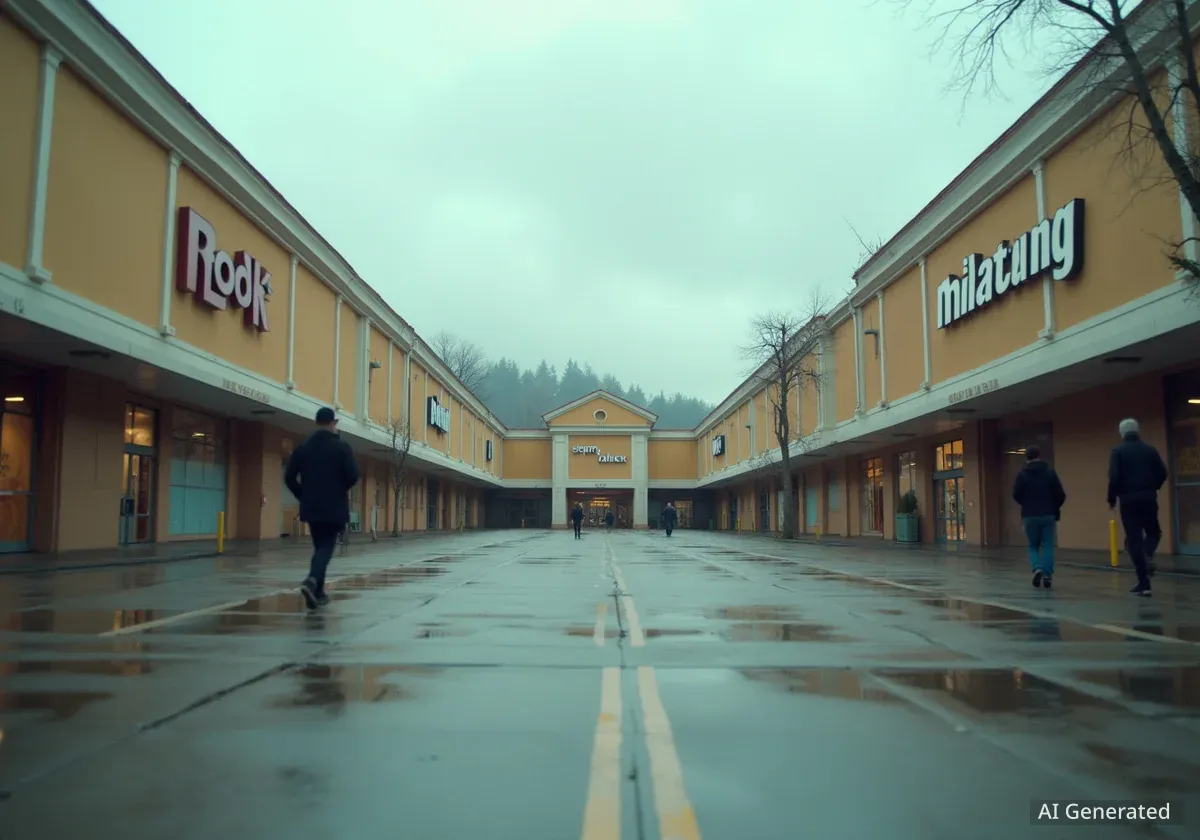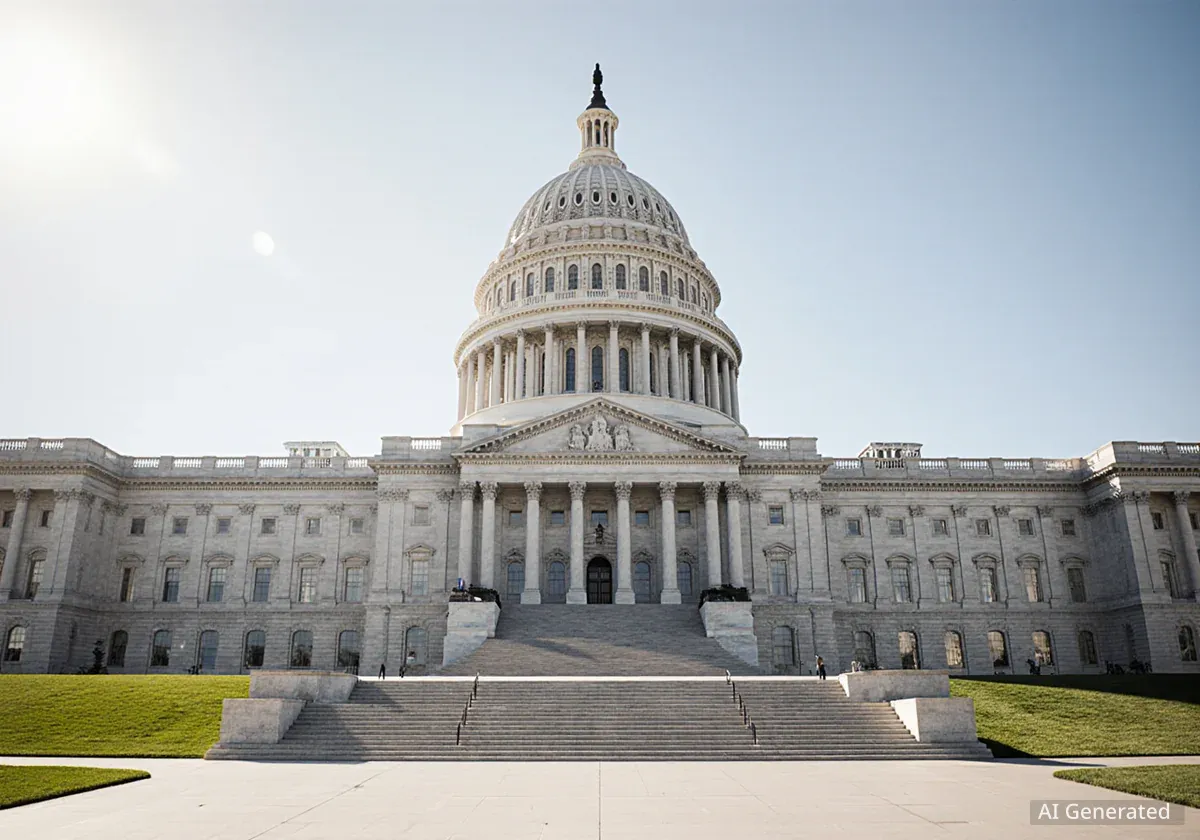The City of Citrus Heights is considering unprecedented legal action, including the potential use of eminent domain, to gain control over the struggling Sunrise Mall. This move comes after years of stalled progress and disagreement with the property's owner, Namdar Realty Group, over a comprehensive redevelopment plan aimed at revitalizing the key commercial area.
The conflict centers on the city's ambitious vision to transform the 100-acre site into a modern mixed-use community, a plan officials say is critical for the city's economic future. However, the property owner has yet to submit a formal development application, leading to a high-stakes confrontation that could set a new precedent for municipal intervention in private commercial properties.
Key Takeaways
- The City of Citrus Heights is exploring eminent domain to acquire the Sunrise Mall property from its owner, Namdar Realty Group.
- The city's "Sunrise Tomorrow" plan proposes a mixed-use development with housing, retail, and public spaces, aiming to generate significant economic activity.
- Namdar Realty Group has not submitted a formal redevelopment plan, leading to frustration and a potential legal battle with the city.
- The dispute highlights the growing challenges cities face in repurposing large, aging retail centers amid changing consumer habits.
A Stalled Vision for a Regional Hub
For years, Citrus Heights has worked on a plan to reimagine the Sunrise Mall, a once-thriving retail center that has seen a significant decline. The mall, which opened in 1972, now suffers from high vacancy rates and dwindling foot traffic, reflecting a nationwide trend away from traditional indoor shopping centers.
In response, the city developed the "Sunrise Tomorrow Specific Plan," a detailed blueprint for transforming the property into a vibrant, walkable district. The plan envisions a complete overhaul of the site, replacing the sprawling parking lots and enclosed mall structure with a grid of new streets, parks, residential units, office spaces, and modern retail storefronts.
According to city documents, the project is projected to create thousands of jobs and generate millions in annual tax revenue. However, progress has been at a standstill. City Manager Ashley Nate has publicly expressed frustration over the lack of action from the mall's owner.
"We have a community-backed, council-approved vision for this property that represents the future of Citrus Heights," Nate stated in a recent council meeting. "We cannot allow this critical asset to languish indefinitely. We have a responsibility to our residents to ensure this site is used productively."
The Owner's Position
Namdar Realty Group, a New York-based firm specializing in distressed retail properties, acquired Sunrise Mall in 2020. Since the acquisition, the firm has not submitted a formal development application that aligns with the city's specific plan. While the company has not issued extensive public statements, representatives have previously indicated a preference for a more gradual, market-driven approach to redevelopment rather than a large-scale, city-led master plan.
This difference in strategy is at the core of the conflict. The city is pushing for a comprehensive transformation, while the owner appears to favor a less capital-intensive strategy, potentially focused on maintaining the existing structure with new tenants. This impasse has led city officials to consider more forceful options.
The Eminent Domain Consideration
The most significant development in the dispute is the Citrus Heights City Council's recent decision to explore the use of eminent domain. This legal process allows a government entity to acquire private property for public use, provided it pays fair market value to the owner. It is a powerful tool typically reserved for infrastructure projects like highways or schools, and its use for commercial redevelopment is often controversial.
What is Eminent Domain?
Eminent domain is the right of a government to take private property for public use, following the payment of just compensation. The "public use" clause has been interpreted by courts to include economic development, but such actions can face significant legal challenges from property owners who argue it oversteps government authority.
Citrus Heights officials argue that revitalizing the mall property constitutes a legitimate public use because its decline creates a blighted area that negatively impacts the entire community's economic health and safety. They contend that a redeveloped site would provide public benefits, including new housing, public spaces, and a stronger tax base.
The city has hired a consultant to conduct an appraisal of the 100-acre property to determine its fair market value, a necessary first step in any potential eminent domain proceeding. The process is expected to be lengthy and could cost the city millions in legal fees and acquisition costs.
Economic and Community Stakes
The future of Sunrise Mall is more than just a real estate dispute; it is a critical issue for the economic well-being of Citrus Heights. The mall is one of the largest commercial properties in the city and a primary source of sales tax revenue.
Sunrise Mall by the Numbers
- 100 acres: The total size of the mall property.
- 960,000 square feet: The approximate size of the main mall building.
- 1972: The year the mall originally opened.
- Over 50%: Estimated retail vacancy rate within the mall's interior, excluding anchor stores.
Local business owners and residents are watching the situation closely. Many support the city's vision for a revitalized town center, hoping it will attract new investment and visitors. Others express concern about the potential costs of a legal battle and the use of eminent domain against a private business.
A local restaurant owner near the mall, speaking on condition of anonymity, said, "Something has to be done. The empty parking lots are an eyesore, and we've seen fewer customers over the years. A new development could bring life back to this entire area."
Next Steps in a Contentious Process
The path forward remains uncertain. The Citrus Heights City Council has authorized staff to continue negotiations with Namdar Realty Group while simultaneously preparing for a potential eminent domain action. The appraisal process is underway, and the results will be a key factor in the city's next move.
If negotiations fail and the city proceeds, it will likely face a protracted legal challenge from Namdar. Such cases can take years to resolve and involve complex arguments over property valuation and the definition of "public use."
This situation in Citrus Heights is a powerful example of the challenges facing cities across the United States as they grapple with the decline of traditional retail centers. The outcome of this dispute could influence how other municipalities approach similar redevelopment challenges, particularly when faced with uncooperative property owners. The central question remains whether a city's vision for economic renewal can override the property rights of a private owner who prefers a different path.





